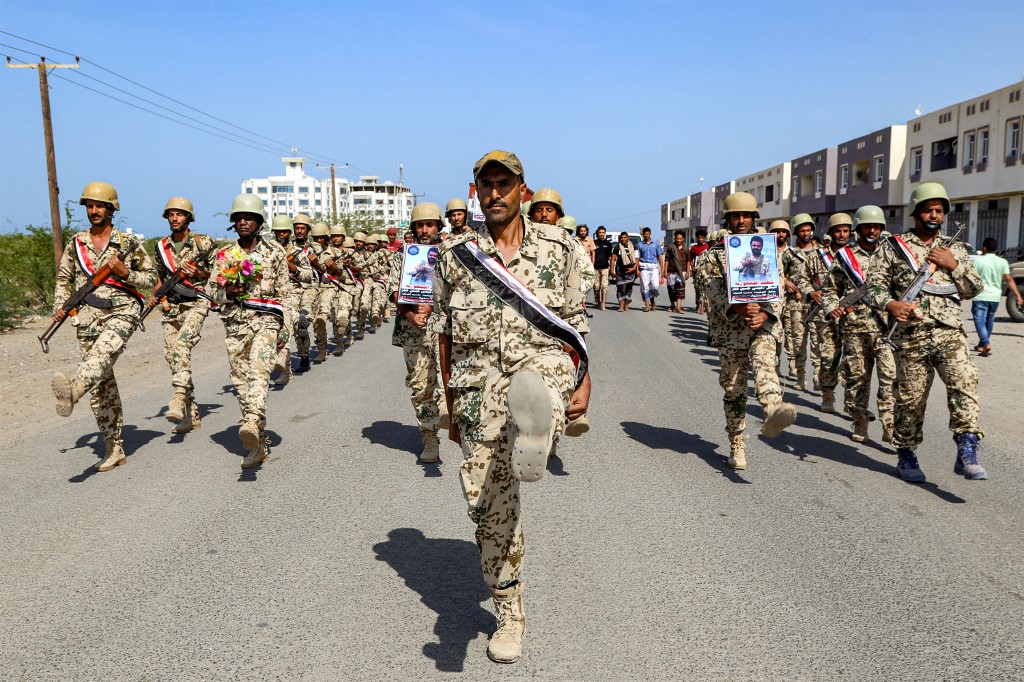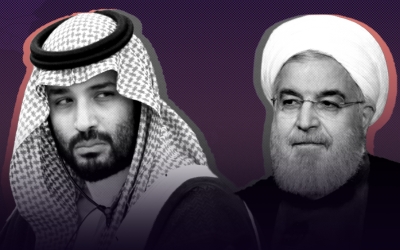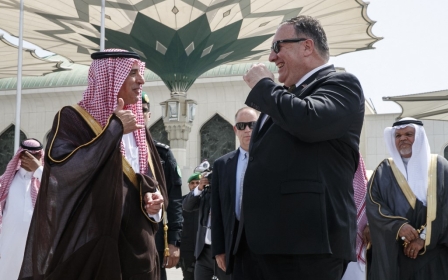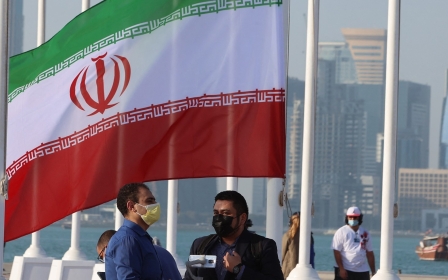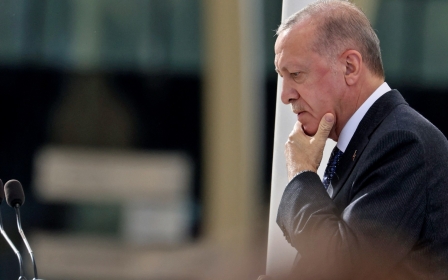Why Iran-Saudi dialogue is hanging by a thread
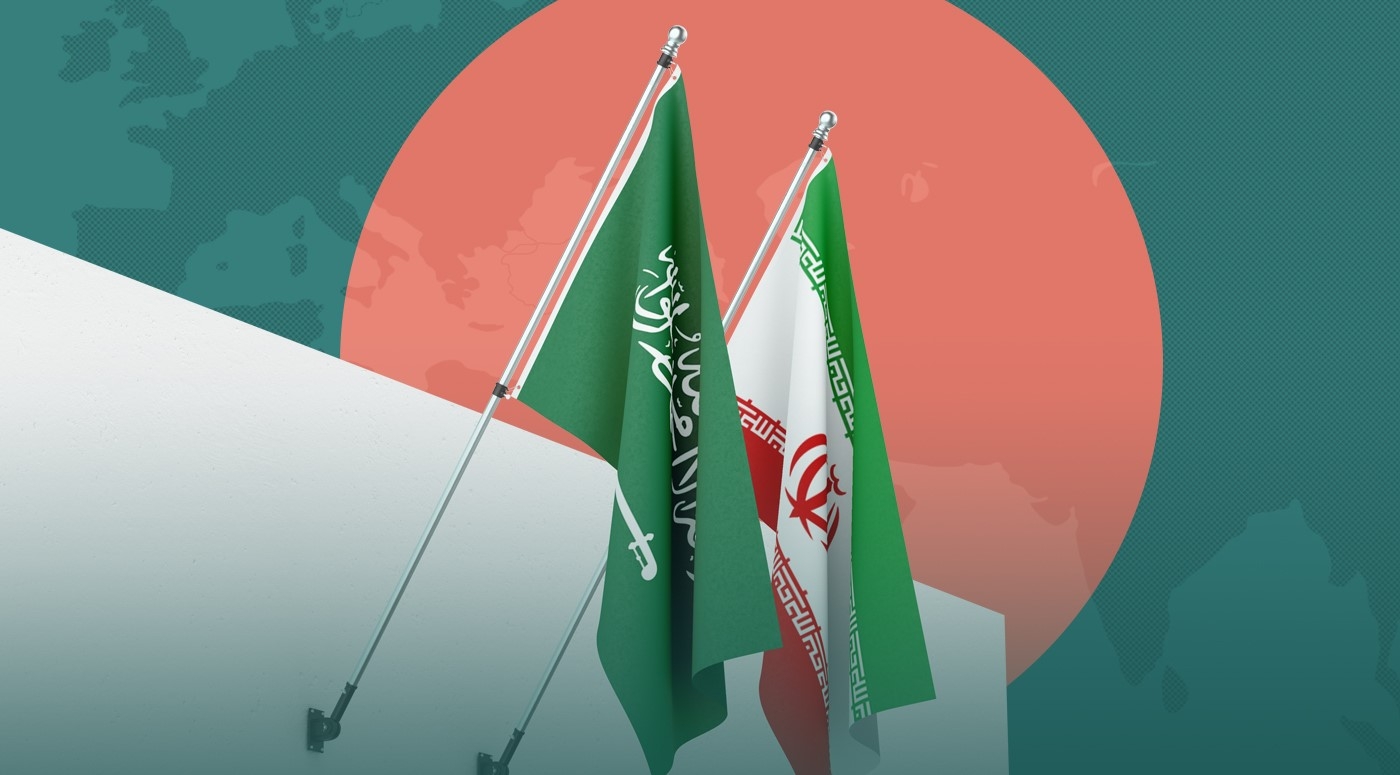
The rival states of Iran and Saudi Arabia have had ups and downs in their relations during the 43 years since the Iranian revolution. In 2016, they cut diplomatic ties after protesters attacked the Saudi embassy in Iran, amid a bilateral dispute over the execution of Saudi Shia cleric Nimr al-Nimr.
Since then, the two countries have held five rounds of talks, with positive results - but after protests erupted in Iran over the death of a young woman arrested by morality police this September, the process was interrupted. Relations between Iran and Saudi Arabia are now at a low point, and some are speculating that negotiations might be dead.
These developments have darkened the future of Iran-Saudi negotiations and removed talks from Tehran's agenda
In addition to the ongoing protests, Tehran has become embroiled in a media war. Saudi Arabia has launched a massive propaganda campaign against Iran through its Persian-language media, incensing Iranian authorities, who have accused the Saudis of attempting to provoke Iranian youths. "Someone who built a palace of glass should not throw stones at other people's houses," warned Brigadier General Alireza Tangsiri, commander of the Islamic Revolutionary Guard Corps navy.
These developments have darkened the future of Iran-Saudi negotiations and removed talks from Tehran’s agenda. But what is Riyadh’s assessment?
Although Saudi Arabia has been indirectly fuelling the political instability in Iran via the media, Riyadh and its Gulf neighbours have thus far refused to express any official position on the protests, apparently opting for a "wait-and-see" policy.
Yemen war
Saudi Arabia's position with regards a potential detente with Iran, assuming the stabilisation of the latter, can be considered in relation to three factors: the Yemen war, the US administration’s role in mediation, and the ongoing Israel normalisation drive.
Yemen is the most pressing issue facing Saudi Arabia, and Iran maintains widespread influence among the Houthi rebels there. Saudi Arabia and its people are tired of the war and are looking for a dignified retreat, but they are left with few choices in this regard, beyond continued talks with Iran - especially after the six-month truce with the Houthis expired in October.
The Houthis have the upper hand militarily in Yemen, controlling the country’s north. They have sent ambassadors to Iran and Syria, and have diplomatic representatives in Iraq, Lebanon and Oman. They have put pressure on Yemen's Presidential Leadership Council by mobilising popular forces, and in October, they targeted a cargo ship in an effort to disrupt the government's oil exports - an important source of revenue.
Days after the truce agreement expired, the Houthis threatened to attack the UAE and Saudi Arabia, which could lead to uncertainty for foreign investors. Riyadh surely realises that the 2019 bombing of oil installations could be repeated, making Saudi Arabia more likely to risk talks with Iran.
US and Israel
The second factor is the willingness of the US administration to negotiate with Iran. While Washington has said that nuclear talks with Iran have stalled amid the ongoing protests, the US has a clear motivation to want the nuclear issue resolved, and it has welcomed the possibility of a Saudi-Iran rapprochement.
US President Joe Biden is phasing out Washington's focus on the Middle East in favour of a China-containment policy, and he needs both regional calm, along with assurances that regional states will build solid alliances to ensure their own security. Biden has encouraged Iraq to mediate talks between Saudi Arabia and Iran. As his predecessor, Barack Obama, said in 2016, chaos in the Middle East will not end until Saudi Arabia and Iran find a way to "share the neighbourhood".
The third factor is Israel. Even before the Abraham Accords formalised the process of normalisation between Israel and other Gulf states, Saudi Arabia and Israel had long been cooperating behind closed doors. Israel also uses the airspace of Saudi Arabia.
In potential future negotiations between Saudi Arabia and Israel, Riyadh could use the restoration of relations with Tehran as a lever of pressure on Tel Aviv, enabling the kingdom to have a stronger position. This could lead to significant concessions for Riyadh, particularly in relation to its stated objective of solving the Palestinian question prior to normalisation with Israel.
For the time being, relations between Saudi Arabia and Iran are significantly strained, and it is not clear when a sixth round of talks may happen. Yet both countries are aware that they cannot solve regional problems without cooperation.
The path ahead
Last week, Iran's foreign minister met his Saudi counterpart on the sidelines of an Iraq-focused summit in Jordan, after which the Iranian foreign minister tweeted in Arabic: "I attended the Baghdad-2 conference in Jordan to reaffirm our support for Iraq, and on the sidelines of the meeting I also had the opportunity to meet with some of my counterparts, including the foreign ministers of Oman, Qatar, Iraq, Kuwait and Saudi Arabia. The Saudi minister assured me of his country's readiness to continue dialogue with Iran."
Iranian Foreign Minister Hossein Amirabdollahian did not provide further details and the Saudis had not immediately issued a response to the tweet, posted last Wednesday.
Three months ago, at the height of the protests in Iran, Saudi Foreign Minister Faisal bin Farhan al-Saud told France 24: "We certainly have the intent to build a positive relationship with our neighbours in Iran." And earlier this month, Amirabdollahian said Tehran was ready to hold a joint meeting of foreign and defence ministers from Gulf states and other neighbouring countries.
Yet while Iraq's foreign minister said in November that it appeared Iran and Saudi Arabia had embarked on a "diplomatic path", the road ahead remains unclear.
The views expressed in this article belong to the author and do not necessarily reflect the editorial policy of Middle East Eye.
Middle East Eye propose une couverture et une analyse indépendantes et incomparables du Moyen-Orient, de l’Afrique du Nord et d’autres régions du monde. Pour en savoir plus sur la reprise de ce contenu et les frais qui s’appliquent, veuillez remplir ce formulaire [en anglais]. Pour en savoir plus sur MEE, cliquez ici [en anglais].



